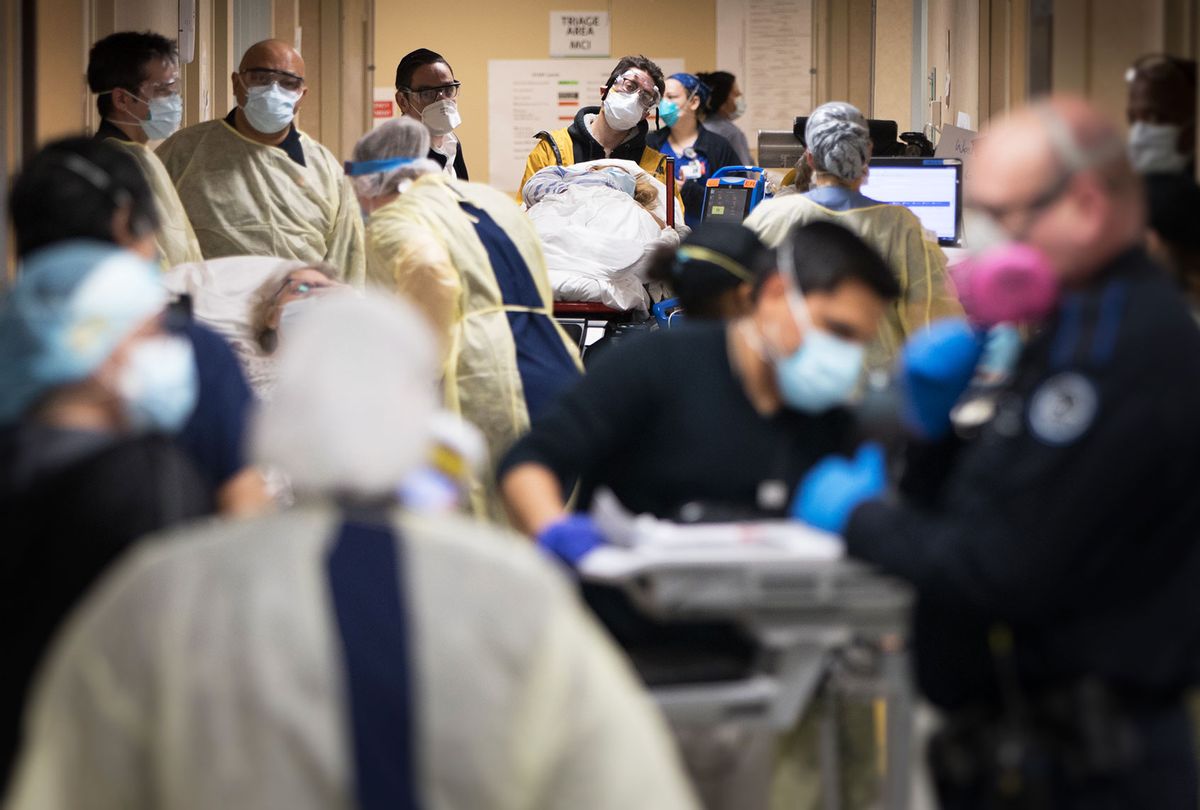
At the Medical University of South Carolina Shawn Jenkins Children's Hospital, for example, doctors in September treated 37 children with COVID and nine with MIS-C — the highest monthly totals since the pandemic began.
Doctors have no way to prevent MIS-C, because they still don't know exactly what causes it, said Dr.Although most children who develop MIS-C were previously healthy, 80% develop heart complications.Adults also can develop a post-COVID inflammatory syndrome, called MIS-A; it's even rarer than MIS-C, with a mortality rate seven times as high as that seen in children.
Although MIS-C is new, doctors can treat it with decades-old therapies used for Kawasaki disease, a pediatric syndrome that also causes systemic inflammation.Researchers at Boston Children's Hospital and other institutions are looking for clues in children's genes."I don't know why some kids get this and some don't," said Dr.Most children with MIS-C test negative for COVID, suggesting that the body has already cleared the novel coronavirus from the nose and upper airways.That led doctors to assume MIS-C was a "postinfectious" disease, developing after "the virus has completely gone away," said Dr.Lael Yonker noticed that children with MIS-C are far more likely to develop gastrointestinal symptoms — such as stomach pain, diarrhea and vomiting — than the breathing problems often seen in acute COVID.
In some children with MIS-C, abdominal pain has been so severe that doctors misdiagnosed them with appendicitis; some actually underwent surgery before their doctors realized the true source of their pain.Yonker, a pediatric pulmonologist at Boston's MassGeneral Hospital for Children, recently found evidence that the source of those symptoms could be the coronavirus, which can survive in the gut for weeks after it disappears from the nasal passages, Yonker said.In a May study in The Journal of Clinical Investigation, Yonker and her colleagues showed that more than half of patients with MIS-C had genetic material — called RNA — from the coronavirus in their stool.In some children, the virus irritates the intestinal lining, creating microscopic gaps that allow viral particles to escape into the bloodstream, Yonker said."We don't see live virus replicating in the blood," Yonker said.Although the first doctors to treat MIS-C compared it to Kawasaki disease — which also causes red eyes, rashes and high fevers — Arditi notes that MIS-C more closely resembles toxic shock syndrome, a life-threatening condition caused by particular types of strep or staph bacteria releasing toxins into the blood.Although multiple studies have found that children with MIS-C have fewer total T cells than normal, Arditi's team has found an explosive increase in a subtype of T cells capable of interacting with a superantigen.Although children who survive Kawasaki disease have a higher risk of long-term heart problems, doctors don't know how MIS-C survivors will fareThe NIH and Centers for Disease Control and Prevention have launched several long-term trials to study young COVID patients and survivorsResearchers will study children's immune systems to uncover clues to the cause of MIS-C, check their hearts for signs of long-term damage and monitor their health over time